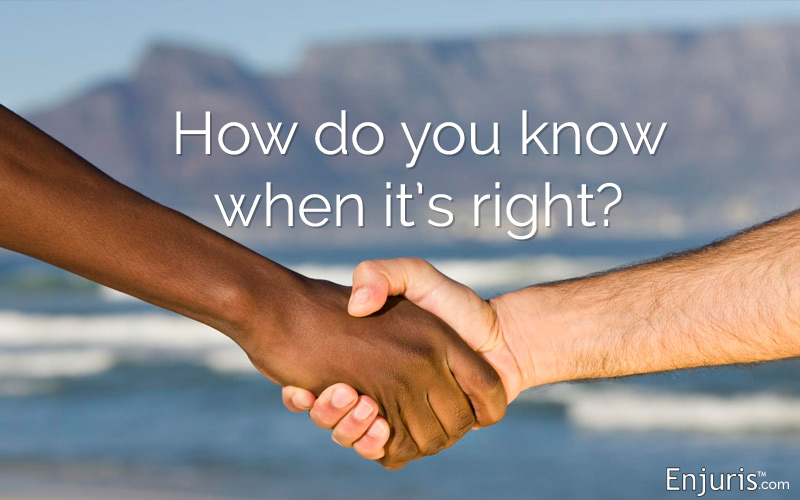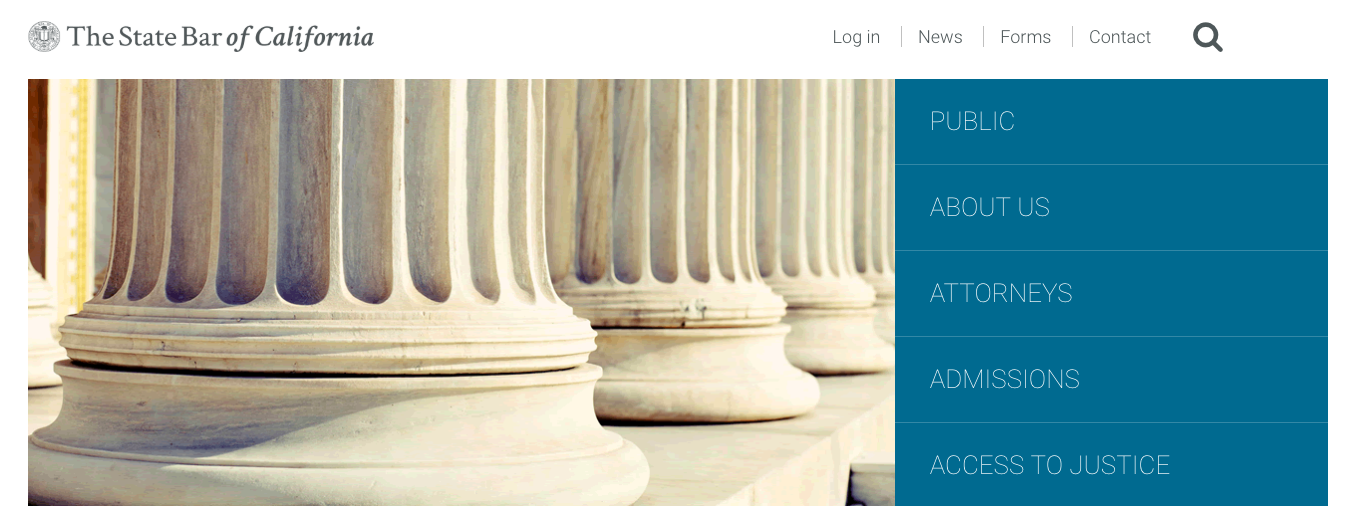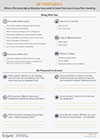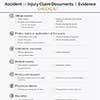
Tips to search for, interview, and select the best California lawyer for your lawsuit
Finding the best lawyer for your case could be the most important part of the legal process.
All lawyers have to meet a certain set of standards — they must pass their state’s Bar Exam and meet other criteria in order to be admitted to the state Bar.
But that doesn’t mean all lawyers are equal.
There are more than 170,000 lawyers in California, which means it has the second-largest number of lawyers in the nation (second only to New York, more than 180,000 lawyers).
So how do you choose the one who’ll best represent you?
Just like you wouldn’t go to an ear, nose, and throat doctor for a broken ankle, you also need to select a lawyer whose specialty matches your injury. There are other things to consider when choosing a lawyer, too.
Here’s a guide to finding the right lawyer who’ll be best-suited to ensuring that you receive the recovery you need from your California personal injury claim.
Legal ethics regulations don’t allow an attorney to come to you and offer to take your case. If a lawyer learns about your accident from news coverage or in some other way, they’re not allowed to contact you to offer their services, unless they are your friend or family member.
“Ambulance chasing” might be a punchline in movies or on TV, but in real life it’s not allowed. Avoid talking to lawyers who disobey ethics rules and solicit your business.
Step 1: Finding a lawyer — where to begin
If you’ve been in an accident, there isn’t time to waste. Certainly, your first priority is to be medically healthy and receive what you need in immediate treatment. You should be aware of the statutes of limitations, or deadlines, for when you must file a claim.
If you’ve been receiving medical treatment, you’re going to start seeing medical bills piling up, especially if your injury was severe or requires ongoing or future medical services. The sooner you find a lawyer and file a claim, the closer you are to reaching financial recovery to pay your bills.
Word of mouth
Word of mouth can be your best referral source.
Ask your friends, family members, neighbors, or coworkers if they can recommend a personal injury attorney.
Reaching out to your contacts can be time-consuming, and you might not know who to ask because you’re not necessarily aware of who’s used a personal injury lawyer before.
Try reaching into your online social network, but use caution if you choose to search that way. Sites and apps like Nextdoor and Angie’s List are designed for users to search products and services nearby, and they often provide reviews and recommendations from people in your community.


However, be aware that these sites are advertising-supported, so what might look like a recommendation is actually a paid advertisement. These sites can be a good source for finding a list of lawyers within a certain geographic distance, and then you can evaluate them individually from there.
If you’re going to make your own post on Facebook or Nextdoor to ask for recommendations from friends, always be wary of sharing too much information about your injury. It’s fine to post that you’re looking for a personal injury lawyer, but refrain from sharing any details.
Legal directories online
An online legal directory will likely offer more specific search capability and information than sites like Nextdoor. Nextdoor can find you anyone from a landscaper, to a pet sitter, to a lawyer. Legal directories will hone in on specific areas of the law and can help you find exactly the kind of lawyer you need.
Here’s a start: The Enjuris Personal Injury Law Firm Directory is free to use and links directly to websites and profiles of top-rated California personal injury lawyers.
You can also use an online directory offered by The State Bar of California, which allows you to find specialists and use other location-based search criteria.

Step 2: Narrowing your search
By now, you’ve used your resources to compile a lengthy list of personal injury lawyers in your area — but how do you find The One?
In today’s environment, practically every personal injury lawyer has a website. And there’s a lot of information on those websites if you know what you want to look for.
Usually, a lawyer’s profile will contain these elements:
- Educational background
- Courts where the lawyer is admitted to practice
- Specialties (practice areas)
- Contact information
- Honors and awards
- Other interests and activities (for example, if they sit on any boards of nonprofit organizations)
You can also usually view profiles for the whole legal team. Especially in larger firms, there will likely be several people working on your case. You might find that much of your communication is with paralegals, legal assistants, or junior lawyers.
Reading a lawyer’s bio can give you a gut feeling about whether you might have anything in common, whether the kinds of cases they’ve handled are similar to yours, and if they might be a good fit.
Most personal injury lawyers offer a free consultation. For the sake of time, you probably want to narrow your options to 3-5 choices before requesting consultations.
Step 3: Preparing for your consultation
The next step is to prepare to meet with a personal injury lawyer.
 Your First Meeting with an Attorney
Your First Meeting with an Attorney
A worksheet to prepare for your first meeting with a personal injury attorney – what to bring, what they'll ask
Download in PDF format![]()
Realize ahead of time that lawyers are very busy. They’ll have an allotted amount of time set aside for your meeting and, although they want to get a sense of who you are, they’re also going to want to get to the point pretty fast. So, make it easy on them and on yourself by having the necessary documents and answers before you arrive.
Bring the following information with you to your initial meeting:
- Medical information, including records that detail diagnoses and treatments
- Medical bills (including those that were already paid by you or by your insurance company)
- Documents that detail what your future medical needs are
- Any related services you received (ambulance transport, hospital, etc.) with names and addresses for each
- Dates of treatment (including hospital admissions and release dates)
- List of current medications and any prescribed medications you were taking as a result of the injury
- Copy of your relevant insurance policies (medical, auto, homeowners, or other)
- Documentation of lost wages and proof of salary or income
- Police reports or other documents like witness statements or photos related to the accident (or cause of injury)
Before you meet with the lawyer, have two copies of each document — one for you to keep and another complete set to give the lawyer. The more organized your paperwork is, the better. Be prepared to answer questions about what each document contains and why it’s relevant.
 Documents & Evidence Checklist
Documents & Evidence Checklist
Checklist of 30 items to help you prepare for making a personal injury or accident claim
Download in PDF format![]()
What to expect at your first meeting with a personal injury lawyer
When you meet with a lawyer for the first time, it will be a combination of them asking you questions and you asking questions of them.
The lawyer will probably ask you to explain the details of your injury in your own words.
No matter how well-qualified, highly recommended, or accomplished a lawyer is, if you’re not comfortable communicating with them then it might not be a good fit.
In order to make the strongest arguments to win your case, your lawyer might need to know sensitive details about your medical history and current condition. If you aren’t comfortable sharing personal details, it could hurt your chances of recovery.
Not everything you share with your lawyer needs to become public, but you should have a trusting relationship with your lawyer.
Read more about attorney-client privilege and confidentiality.
Questions to ask at your first meeting with a personal injury lawyer
There are several questions you’ll want answered before you decide whether or not to hire the lawyer. Here are some examples to get the conversation started:
- What kind of experience do you have with this type of case?
- How many of your cases settle out of court, and how many go to trial?
- Who on your team will be handling my case?
- What do you need/expect from me during the legal process?
- When would you be able to file my lawsuit, and do you have the time to give my case the attention it deserves?
- Do you have contacts with expert witnesses who will be available and reliable to testify in my case?
- What’s your approach to negotiating settlements?
 Personal Injury Attorney Interview Sheet
Personal Injury Attorney Interview Sheet
Worksheet with questions to ask a personal injury attorney to help determine if he or she will be a good fit for your case
Download in PDF format![]()
Each of the answers will give you a sense of how the lawyer and the firm operates. Sometimes a law firm partner will be your first contact, but your case gets handed off to a junior associate (also a lawyer, but with less experience). You want to get the best possible picture of the firm’s process. If there’s likely to be an associate handling your case, you can ask to meet that person and find out about their expertise, too.
If the lawyer seems to be dodging questions or is unwilling to answer fully, they’re probably not the best lawyer for you.
Remember that you’re the client. If they’re too busy, distracted, or unwilling to answer your questions in the initial meeting, it’s not going to get better. It’s only going to get worse. If they don’t want your business enough to give you their full attention and consideration during the first encounter, take your business elsewhere.
Some lawyers expect more than others with respect to client participation in the process. Get a gauge on how this lawyer intends to communicate with you, what your role will be moving forward, and what else they’ll need from you in addition to what you’ve already provided.
How to negotiate attorney fees
Finally! The question that you’re really curious about — how do attorney fees work?
Most personal injury lawyers work on a contingency fee basis. That means you don’t pay their fee up front, and you only pay them when (or if) you receive a damage award or settlement.
Many lawyers’ retainer contracts specify that they’ll be paid around 33% (or one-third) of what you receive in damages or settlement. Some contracts have a provision that the fee goes up to 40% if the case goes to trial, because a trial takes more time and effort than negotiating a settlement.
The rate might be negotiable depending on how complex your case is and what the lawyer thinks the settlement or damage award is likely to be.
Often, lawyers in the same city or town will have comparable rates. You might be tempted to lawyer-shop for the best “deal” or lowest percentage of a contingency fee, but this approach isn’t always the best strategy. If one attorney has a slightly lower percentage, it doesn’t mean you’ll necessarily pay less in the end because that lawyer might not get you as much in damages or recovery.
Ask the lawyer what they require in up-front payments. Some lawyers expect a client to pay expert witness fees, travel expenses, and other costs during the course of the lawsuit. Ask what the lawyer anticipates these expenses to be and when they expect them to be paid. Along those same lines, find out whether these kinds of costs are included in the percentage of the contingency fee to be paid or if they’re additional.
Enjuris offers a variety of resources to help you find the personal injury lawyer who’s best suited to you and your lawsuit:
- List of California personal injury lawyers
- How to Choose a Personal Injury Lawyer: Questions to Ask
- 3 Tips for Finding a Qualified Attorney for Your Personal Injury Case
- How to talk to a lawyer: Hiring an attorney after an accident
- Preparing to Meet with a Personal Injury Attorney
See our guide Choosing a personal injury attorney.
